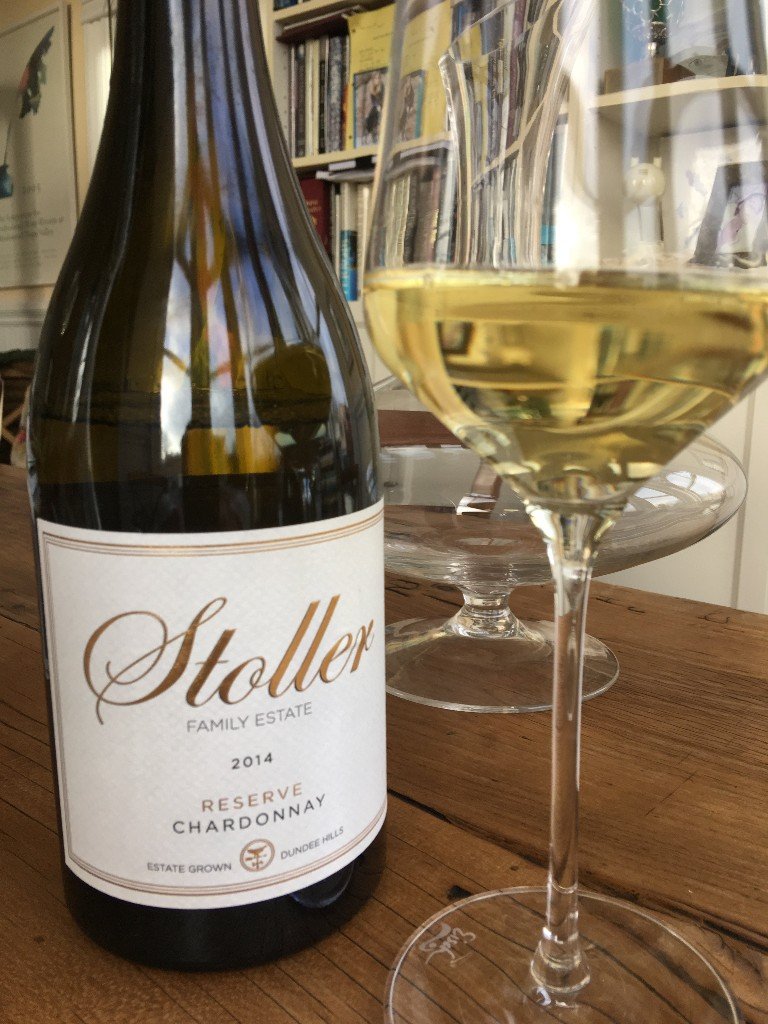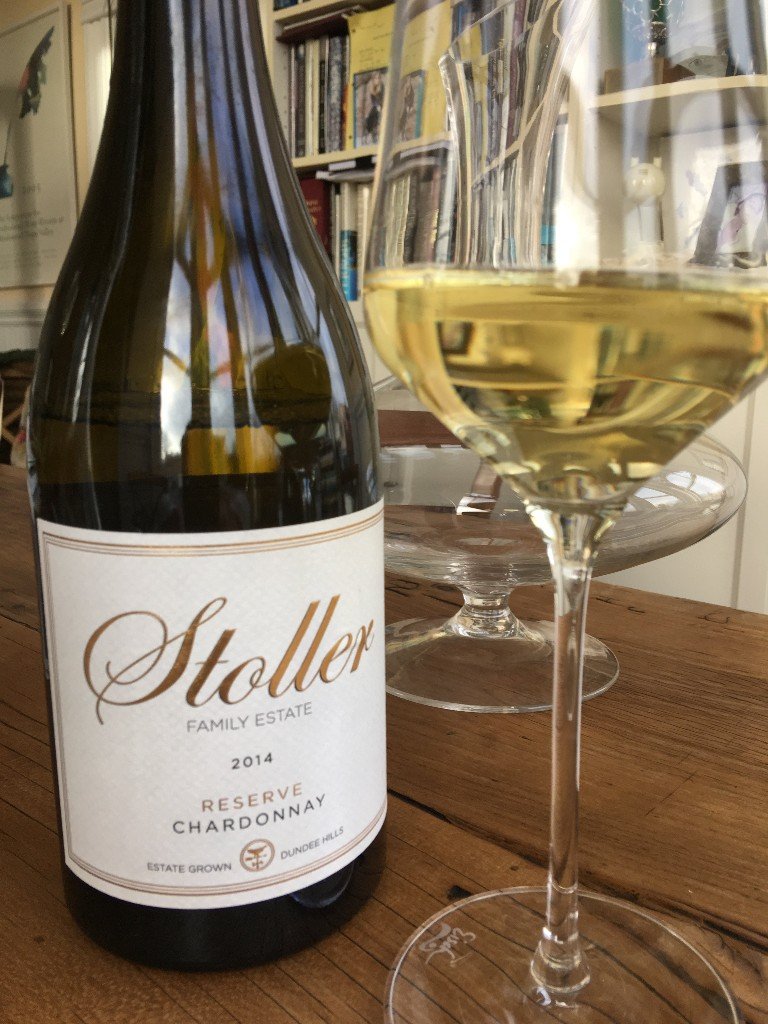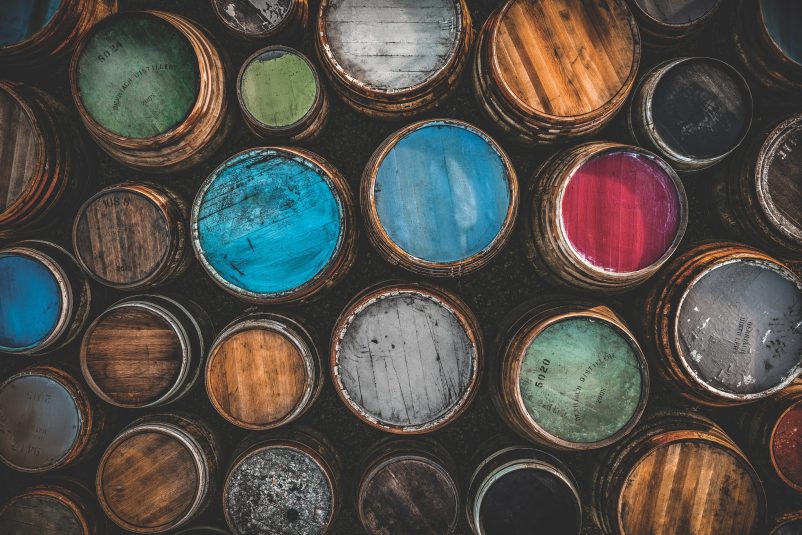
STOLLER | Reserve Chardonnay 2014
(Dundee Hills, Willamette Valley, OR) $37
 For my entire wine life, I’ve loved wines that had a good finish—wines that were long. Recently, I had an epiphany. Wines could be long in the middle of the sensation. That is, the spaces between one’s first impression, the middle of the wine, and the end—those spaces could themselves be long. I call this interstitial length. And I suspect only very, very good to great wines have it. This Stoller has it. It’s so languorous you want to roll around on the carpet. Its flavors are a tight weave of richness, like golden brocade. Plus a lovely lightbeam of acidity (courtesy of the Willamette Valley). I’m a tough critic of chardonnay, but this wine is impressive. (13.8% abv)
For my entire wine life, I’ve loved wines that had a good finish—wines that were long. Recently, I had an epiphany. Wines could be long in the middle of the sensation. That is, the spaces between one’s first impression, the middle of the wine, and the end—those spaces could themselves be long. I call this interstitial length. And I suspect only very, very good to great wines have it. This Stoller has it. It’s so languorous you want to roll around on the carpet. Its flavors are a tight weave of richness, like golden brocade. Plus a lovely lightbeam of acidity (courtesy of the Willamette Valley). I’m a tough critic of chardonnay, but this wine is impressive. (13.8% abv)
92 points KM
Available at Bedford Wine Merchants

Which sparkling wine is not made in the traditional method like Champagne?
A. Crémant d’Alsace
B. Prosecco
C. Cava
D. Franciacorta
Scroll down for the answer!

Pomace
The mashed up solid residue of skins, stems, seeds and pulp that is left over after grapes are pressed. Pomace is often simply spread on vineyards where it decomposes. Or more enterprisingly, it can be distilled to becomes grappa (in Italy), marc (in France) or eau-de-vie (in France and the U.S.)


To the list of all the things you can (but maybe shouldn’t) do while drinking, add this: ax-throwing. According to Tasting Table, two new ax-throwing places will open this year in Boston and ax-throwing bars already exist in Philadelphia and in Canada. If throwing an ax in between sips of pinot noir never crossed your mind, you’re, umm, not alone. But apparently ax-throwing is the new thing. The ax-throwing bars are careful to point out that safety precautions are taken and that an “axepert” supervises every throw. Co-founder of Revolution Axe company, Chris Greeno is quoted in the piece as saying: “If you and your boyfriend or girlfriend walk in for a romantic night of ax throwing, we want to accommodate you.” Good to know.

The Ultimate Gift
In ancient Rome, wine was linked with authority. Of all the pleasures and privileges of power, none was rated more highly than the possession of a vineyard. The highest favor bestowed by the Roman emperor Julian was the gift of a vineyard prepared—actually planted and pruned—by his own hands.
Age Can Be Mind-blowing—Here’s Why
Of wine, it is often said that with age comes beauty. And one might add—expense. A bottle of Chateau Margaux 2000 (which is probably drinking exquisitely as it approaches its 18th birthday) is now about $875 a bottle in wine shops around the U.S. At that price, it’s an experience that most of us will never have. But I have little doubt that something magical has transpired inside that bottle. Continue Reading…


B. Prosecco is made by the Charmat, or tank method. In this method, the second fermentation (which creates the bubbles) takes place in a large tank. By contrast, in the traditional (Champagne) method, the second fermentation takes place inside each individual bottle. There are many reasons why Prosecco is relatively inexpensive, while Champagne is relatively expensive. One of them has to do with this: It is much more painstaking and expensive to conduct the second fermentation inside individual bottles rather than giant tanks.
SaveSave









